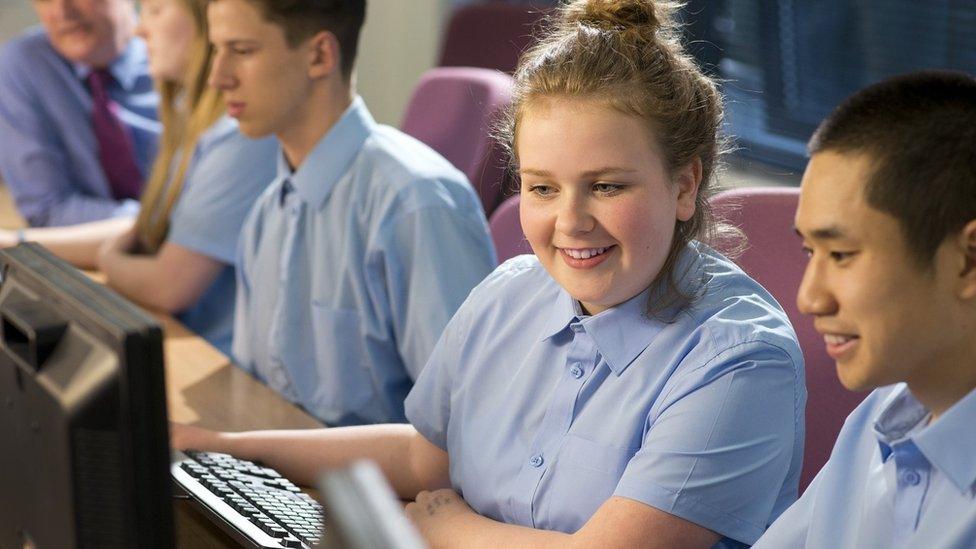Computer science: Girls logging off
- Published

Fewer girls took computing GCSEs this year
If you are looking for signs that technical education is being transformed, and that girls are now more eager to study subjects such as computing, then my advice is to avoid the latest GCSE results.
I have written before about fears that the revolution in computing education has stalled. Now the GCSEs, coupled with the recent A-level results, provide more evidence for those concerns.
In England, entries for the new computer science GCSE, which is supposed to replace ICT, rose modestly from 60,521 in 2016 to 64,159 this year. Girls accounted for just 20% of entries, and the proportion was a tiny bit lower than last year.
ICT entries fell from 84,120 to 73,099, which you would expect as the subject is disappearing from the national curriculum. But it had proved more attractive to girls. Even there, the proportion of female entries fell from 41% to 39%.
Combine the two subjects, and you find that the number studying either subject has fallen by over 7,000 in the past year. Back in 2015 more than 47,000 girls were getting some kind of computing qualification, and that has fallen to about 41,000 - just 30% of the total.
The consultancy Accenture points out that the figure for the engineering GCSE is even worse, with girls making up just 10% of the entrants. Emma McGuigan, the company's group technology officer, said it was a stark reflection of the challenges the tech industry faces when it comes to diversity.
"Our research found that girls are turning away from Stem [science, technology, engineering, mathematics] subjects at an early age with stereotypes, negative perceptions and poor understanding of career options all having an impact," she said.
Bill Mitchell from the British Computing Society (BCS) is concerned about the overall numbers studying computing. He says schools are not offering enough pupils the chance to study the subject because ICT teachers are unprepared for the new course: "A large number just don't have the subject knowledge for the new, more rigorous, computer science GCSE."
The BCS is part of a programme to help teachers upgrade their skills, but says it is only funded to reach 20% of schools.
It says there is still work to do to help girls see computing as a subject for them.
"We need to do more with the curriculum to show it's not just a nerdy boys' subject," said Mr Mitchell. "We've got to show them it's about real problems like climate change and improving healthcare."
The government says it is determined to keep the UK at the cutting edge of the digital revolution after Brexit. But right now, the message from the exam system is that too few will leave school with the skills needed to fulfil that promise.